All Good Things
In which Norm takes a last spin around the galaxy with the animated STAR TREK series LOWER DECKS and PRODIGY, and revisits what might be the best STAR TREK movie of them all: GALAXY QUEST.
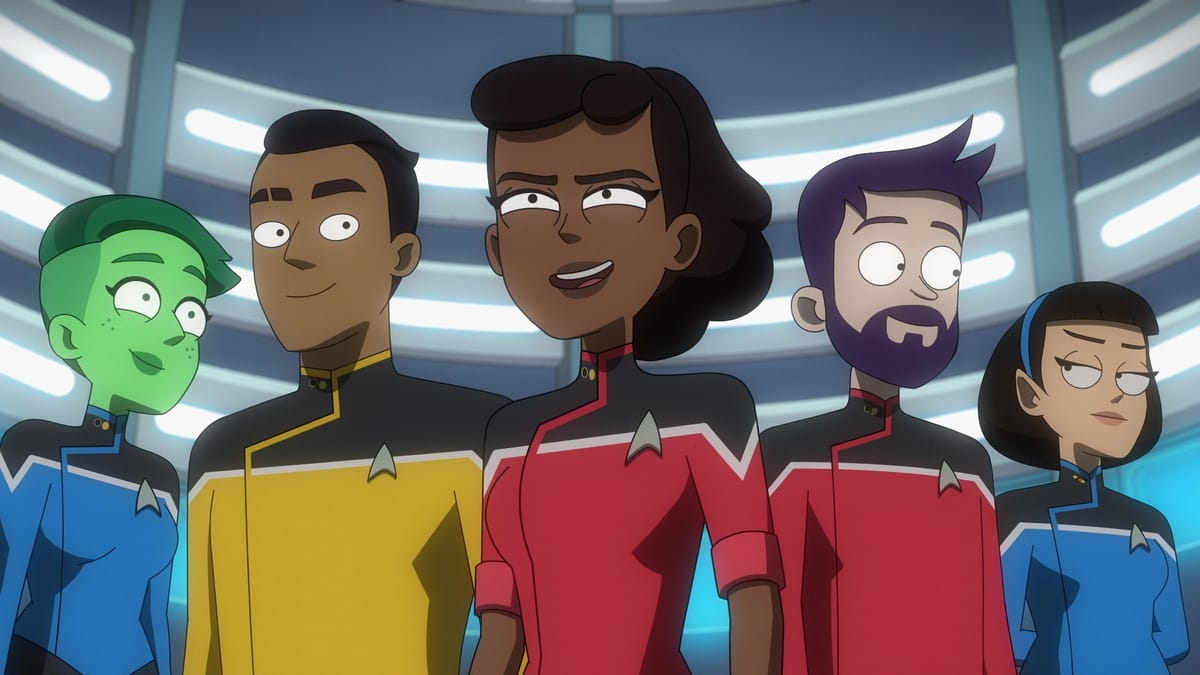
It’s been a few months since Star Trek: Lower Decks streamed its last episode, capping a five-season run that saw it go from a slightly frantic goof on the Next Generation-era property to one of the most endearing iterations of the franchise Gene Roddenbery created six decades ago.

With creator and executive producer Mike McMahan at the helm, and a game voice cast led by Tawny Newsome, Jack Quaid, Eugene Cordero and Noël Wells, Lower Decks carved out a new space in the Star Trek universe, introducing a group of ensigns whose mundane duties offered a new perspective on life in the Federation. The animated nature of Lower Decks let us take things a lot less seriously, allowing Newsome’s rebellious Beckett Mariner space to complain about Klingon honor, Vulcan logic and other super-important canonical stuff while also genuinely engaging with the ethos of Starfleet and the inherent contradictions of life in the United Federation of Planets.
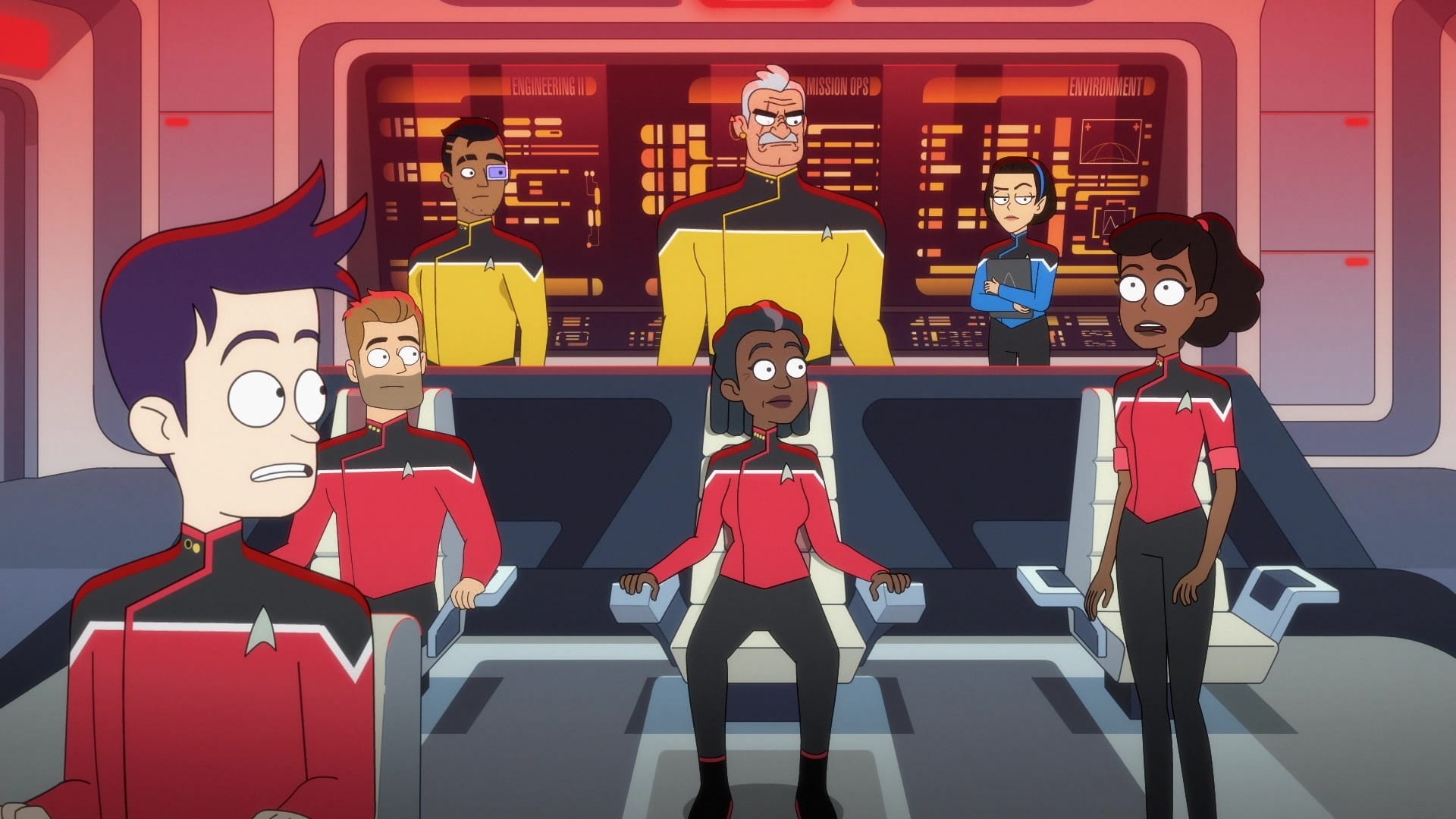
And over five years, with the prodding of Quaid’s nerdy, nervous Brad Boimler, Mariner grew. Introduced as a constant complainer and reflexive troublemaker, protected from real consequences because she was also the captain’s daughter, Mariner gradually revealed that she wasn’t disillusioned by the Federation as much as the ways everyone failed to live up to its ideals – herself included. And having her grow into a responsible officer and even a leader, kicking and screaming all the way, was both meaningful character development and a great deal of fun.
The show returns with the Cerritos charged with patching the weird multidimensional rifts popping up around the galaxy, which of course immediately leads the crew going through a wormhole and encountering an alternate version of itself – not the mirrorverse version, thankfully, even if alt-Boimler does have a beard. It’s a jumping-off point for a season-long consideration of who our heroes have become, and how they’ve gone about it – what lessons they’ve learned, how they rely on one another, and where they might go from here. (Tendi is still doing space-pirate stuff back on Orion, but she finds her way home to Starfleet pretty quickly.)
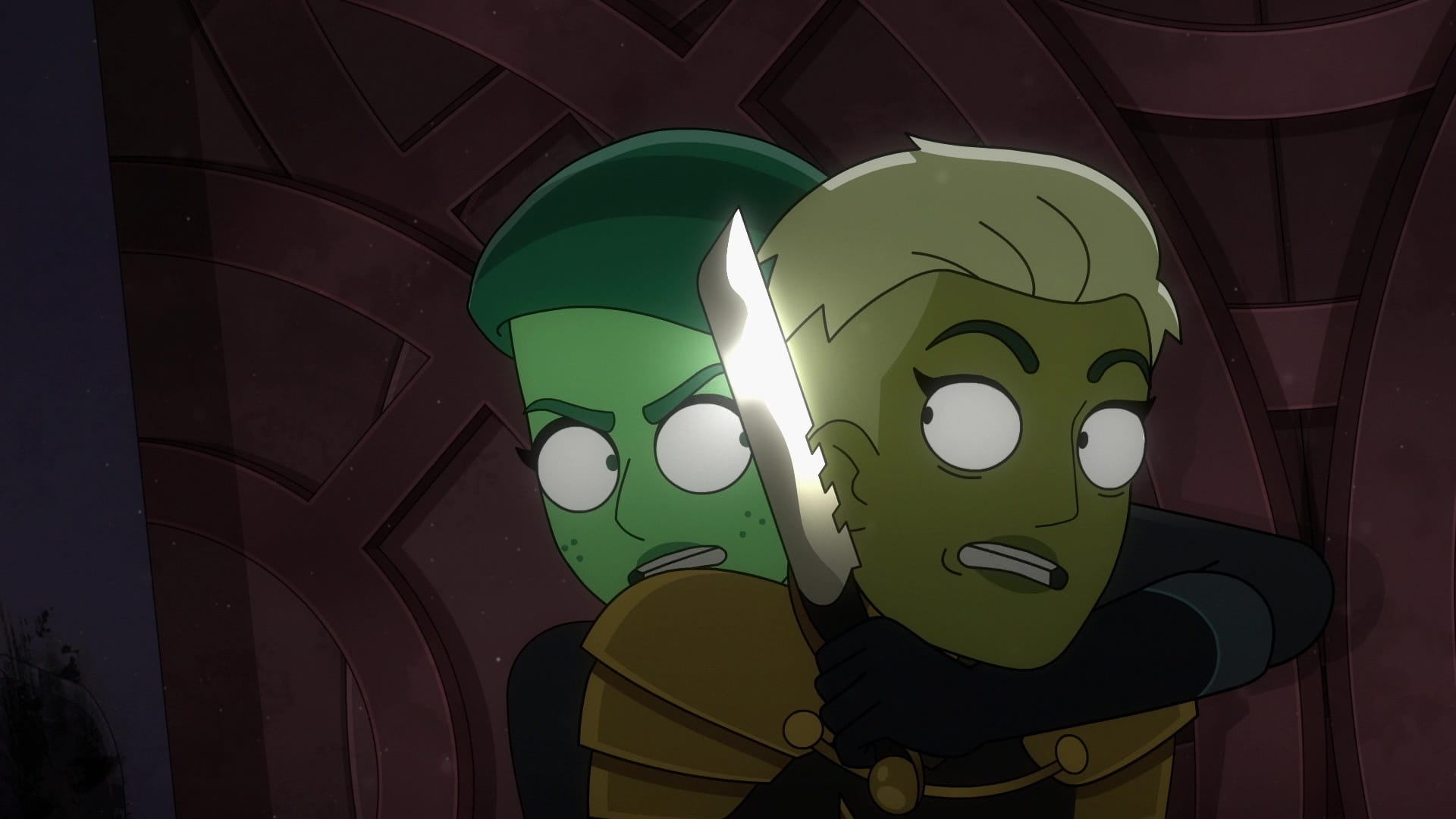
And while the season closes with a great big space adventure, as per tradition, “The Next Next Generation” is not a finale by any means. The crew of the U.S.S. Cerritos is still out there, having once again saved the universe without really meaning to; further adventures are certainly possible, and McMahan clearly wants to tell them. I don’t understand why Paramount chose to end the series, but at least their home-video division has given it the proper treatment with a lovely Complete Series set, which arrives this week in a deluxe double-steelbook special edition.
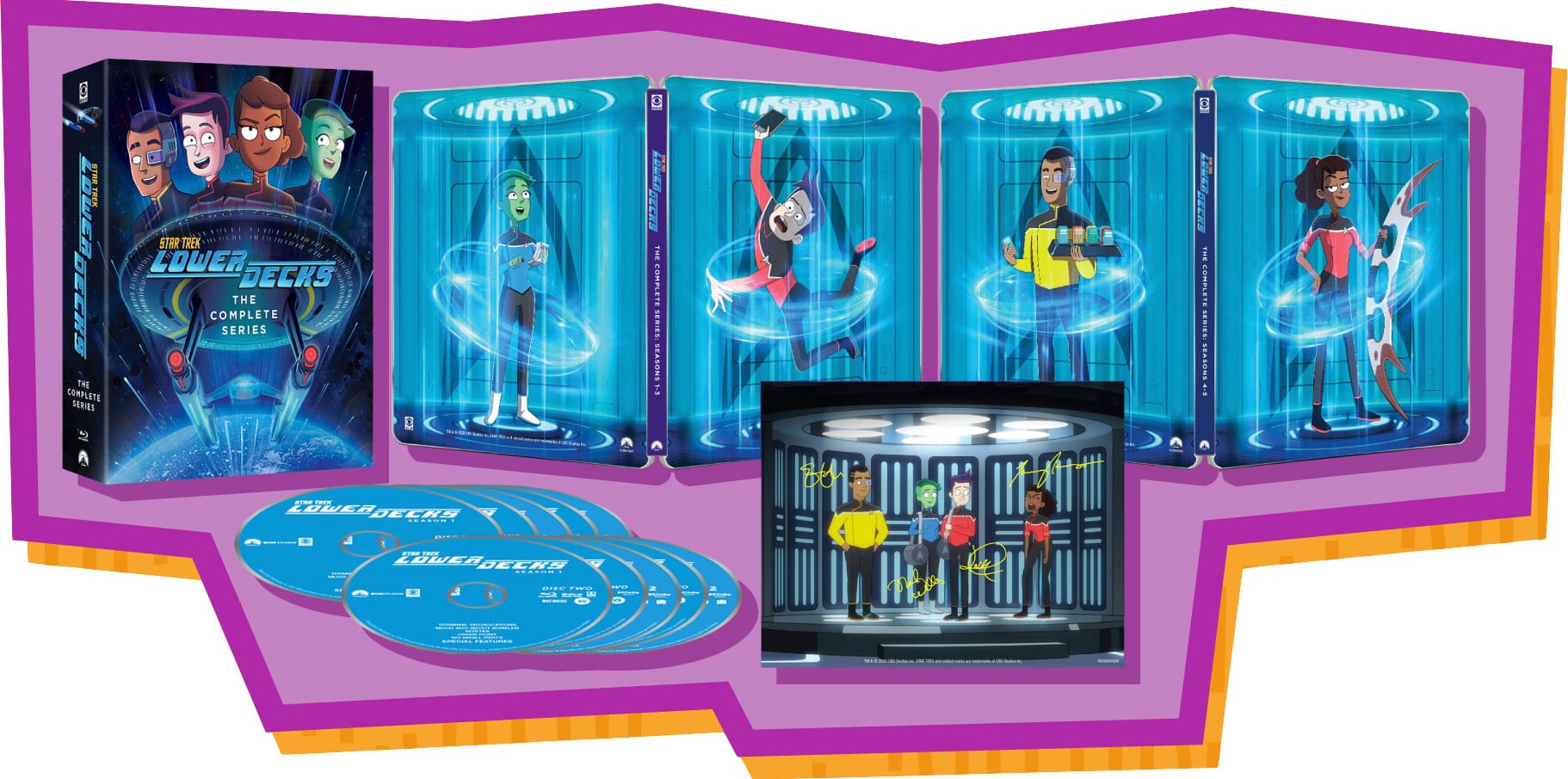
If this all seems a little much, a standard Blu-ray version will be released on April 15th, and if you’ve been grabbing each new season as it’s arrived, Season Five is also available on its own right now. (Paramount never misses a marketing trick when it comes to Trek.)
But if you’ve been holding off, these are the exact same discs that were released in the individual season sets, with all of the previously produced commentary tracks and featurettes, including the “Lower Decktionary” documentaries.
The Season Five discs continue in the same vein, with half the episodes supported by audio commentaries in which McMahan is joined by various members of the voice cast – and all four leads are with him for the final episode, which is very sweet. There’s a sense that the show was working at its peak, taking big risks – like an early episode focused on a Klingon bit player from Season Two’s “Wej Duj” – because it knows it can count on the audience following along. This is a show that’s developed its characters and themes with surprising grace – not just for an animated series, but for any series.
The Season Five “Lower Decktionary” even digs into some of those themes, like the one about Mariner and Boimler being best pals with no hint (or threat) of attraction. “It’s not a will-they won’t-they,” Newsome says of the characters’ dynamic, “it’s a they-won’t-and-I-love-it” – and yes, she’s well aware of the value of depicting a supportive, platonic friendship in a genre traditionally watched by unsocialized nerds.
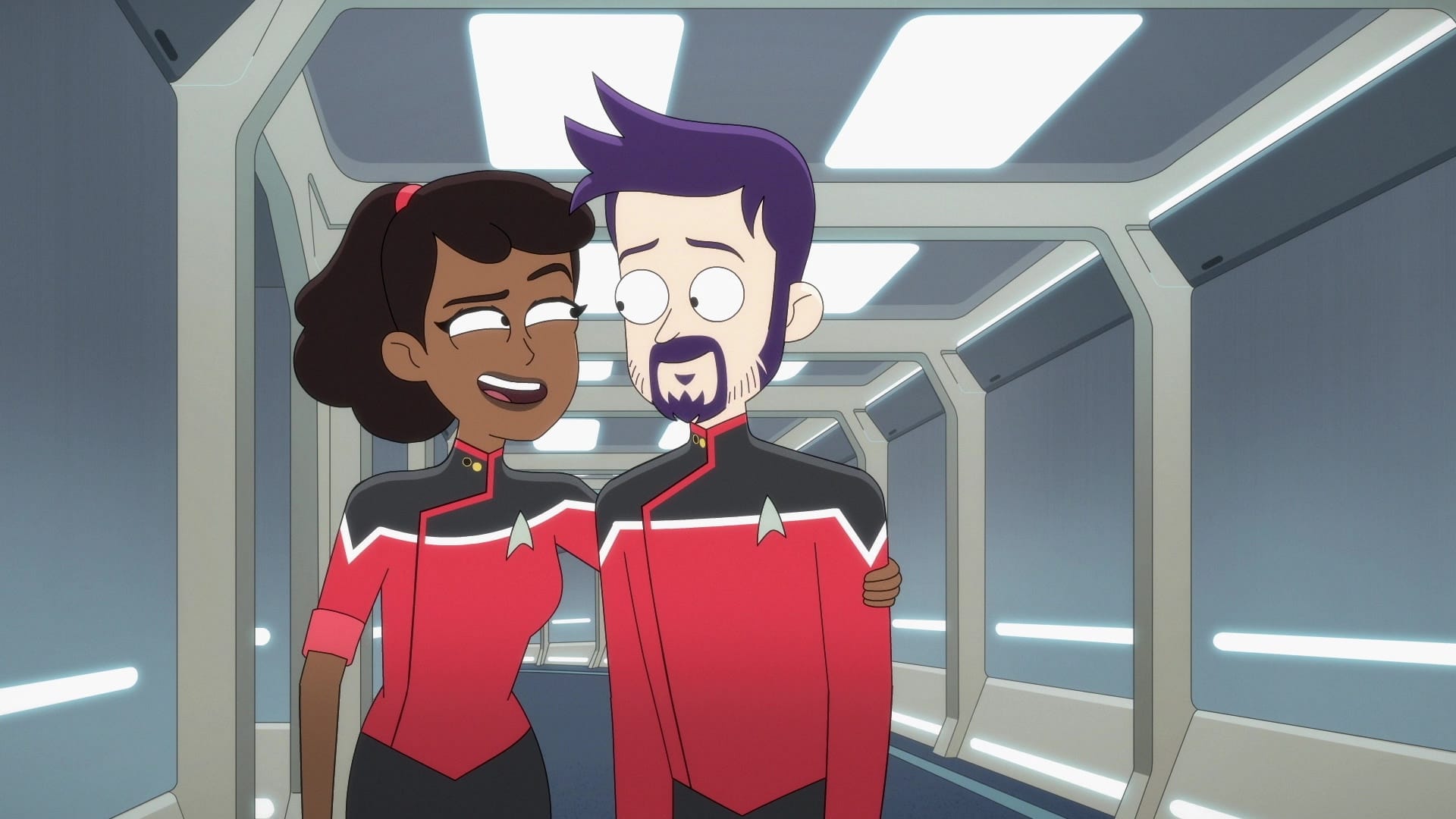
The friendship between Rutherford and Tendi also lets the actors talk about their own relationships to their characters, with Cordero admitting there are aspects of Rutherford he’s been trying to incorporate into his own life – and Wells noting that this season has let the Lower Deckers become the versions of themselves they were always meant to be.
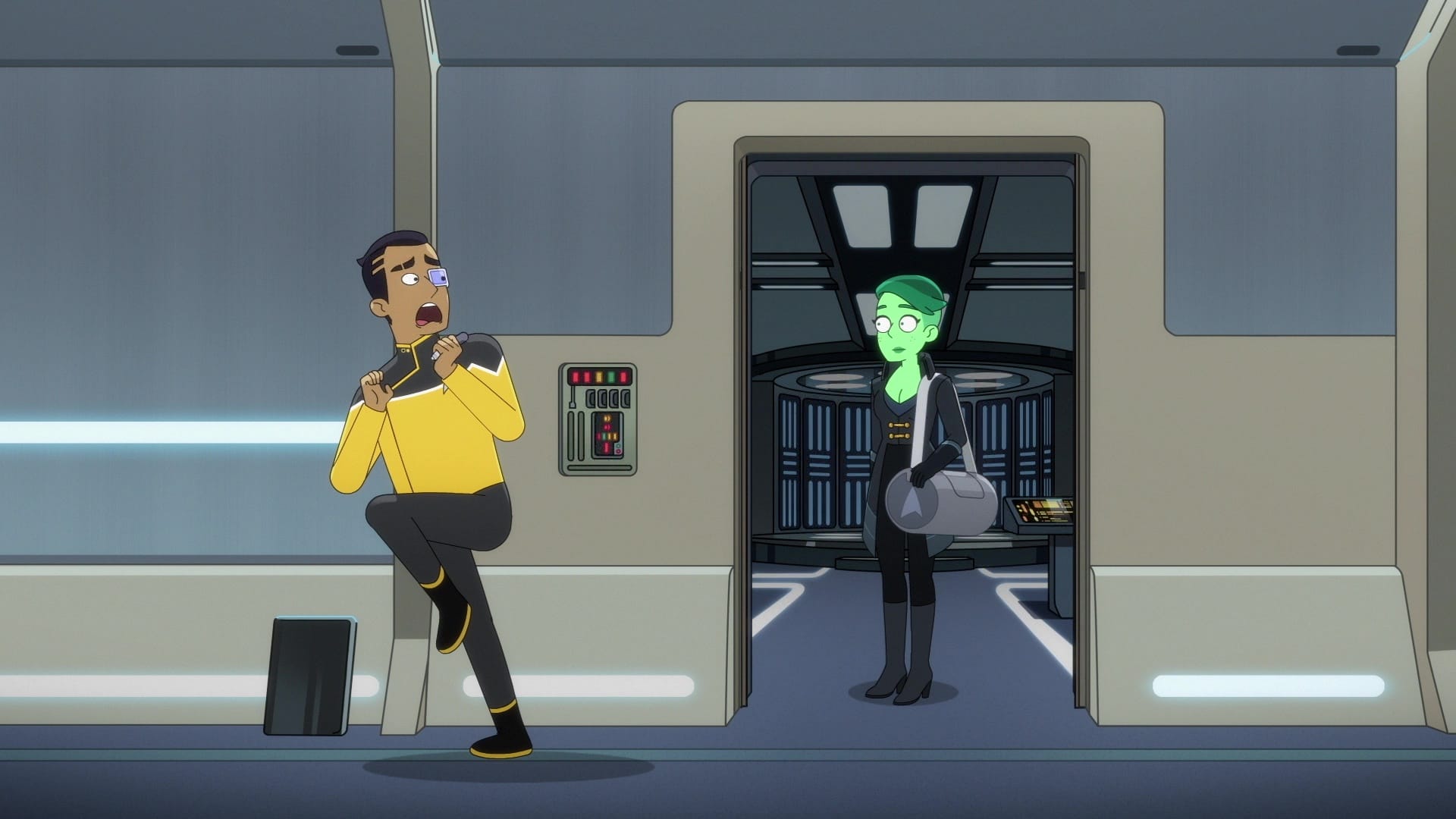
The fact that I find this genuinely touching speaks to my own growth, I guess. And I’m as surprised and delighted at where we ended up as McMahan is – even if his final observation sounds like it was cut off mid-thought. Maybe that’s deliberate. I’d certainly like to hear more.
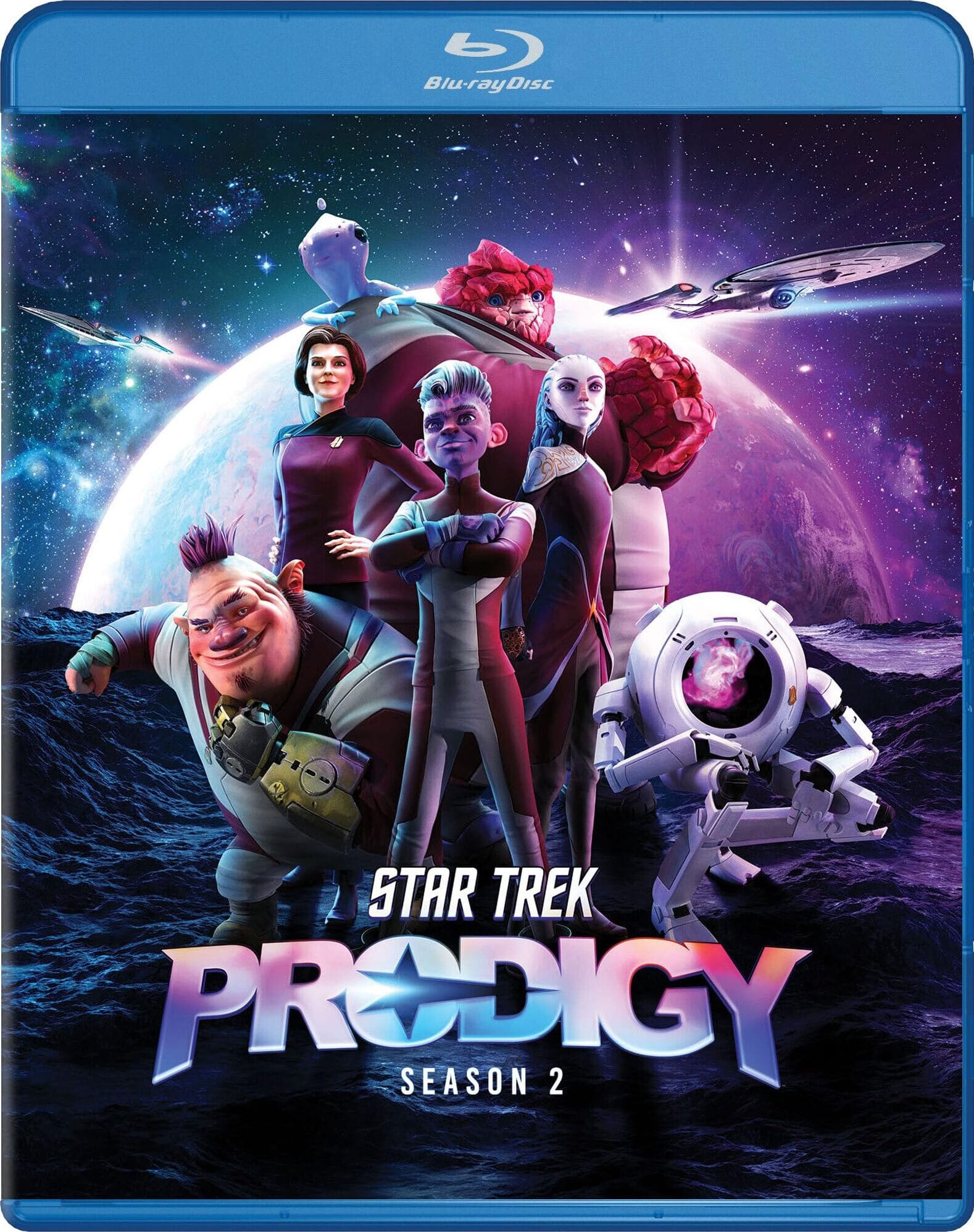
I’d also like to hear more from the pint-size crew of Star Trek: Prodigy, the other Trek series derailed before its time – and more than once. The first season was deleted from Paramount+, leaving the completed second season suspended in limbo before Netflix picked it up for the US. In Canada, we had to wait for the Season Two set to arrive on Blu-ray last November. But it was worth it; once again, Kevin and Dan Hageman have built a delightful, energetic show that makes the most of its slightly exaggerated animation style to give us a universe of weird aliens, sleek starships and bursts of genuine feeling.
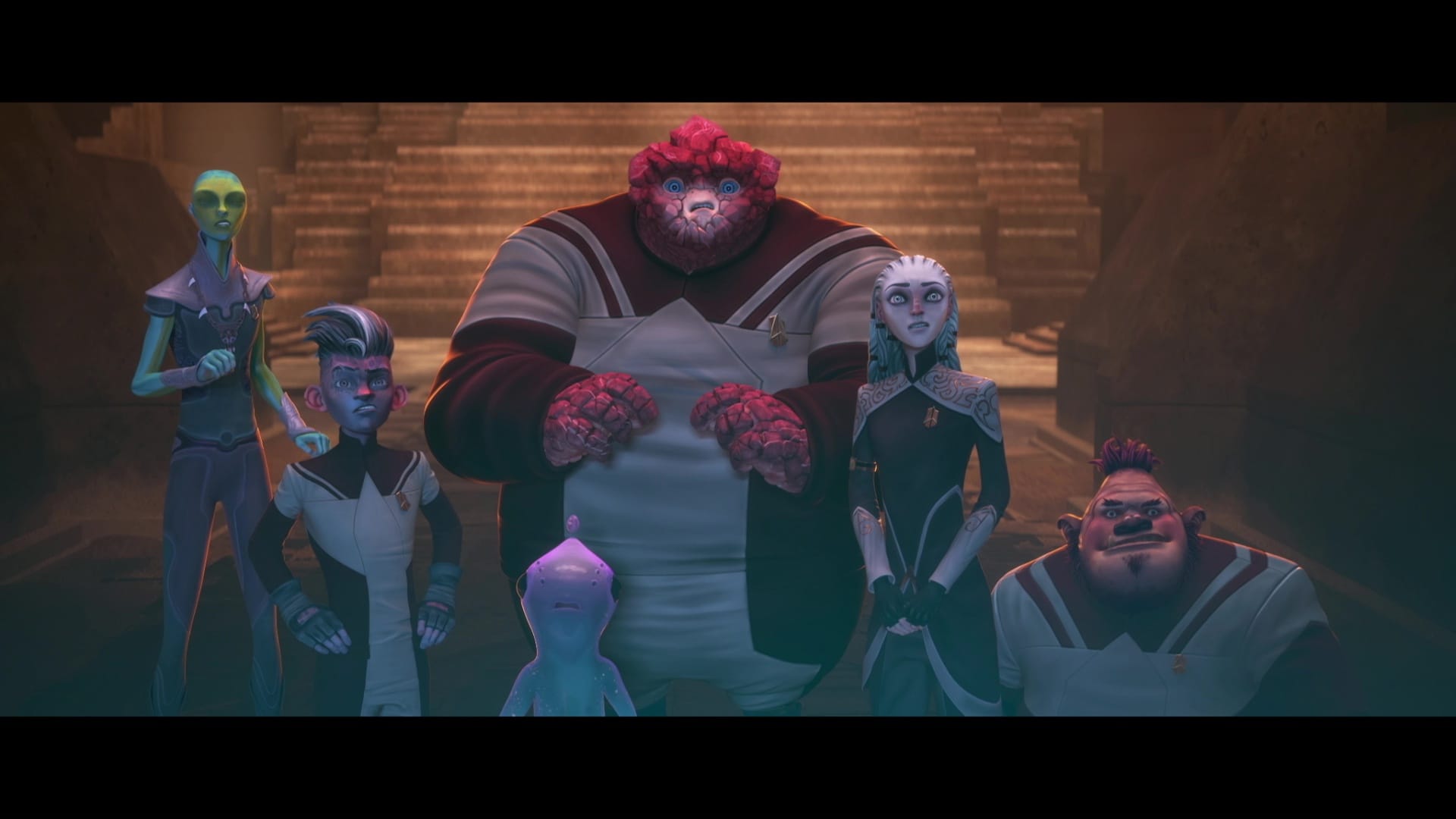
If the first season was about slowly weaving the Protostar’s underage crew into Starfleet – and, more importantly, providing an entry point into Star Trek for kids stumbling onto the show on Nickelodeon – the second is about having them prove themselves as cadets capable of following Starfleet’s command structure. That does not go terribly well, since Dal (Brett Gray) and his team must immediately mount a rescue for their former crewmate Gwyn (Ella Purnell) when her time-travel mission to save her planet goes sideways. That’s just the first in a series of mini-adventures that serve to open up a larger mystery that Admiral Janeway (Kate Mulgrew, still perfect) and The Doctor (Robert Picardo, ditto) are too distracted by the search for the vanished Chakotay (Robert Beltran, awww) to investigate. But the kids are on it.
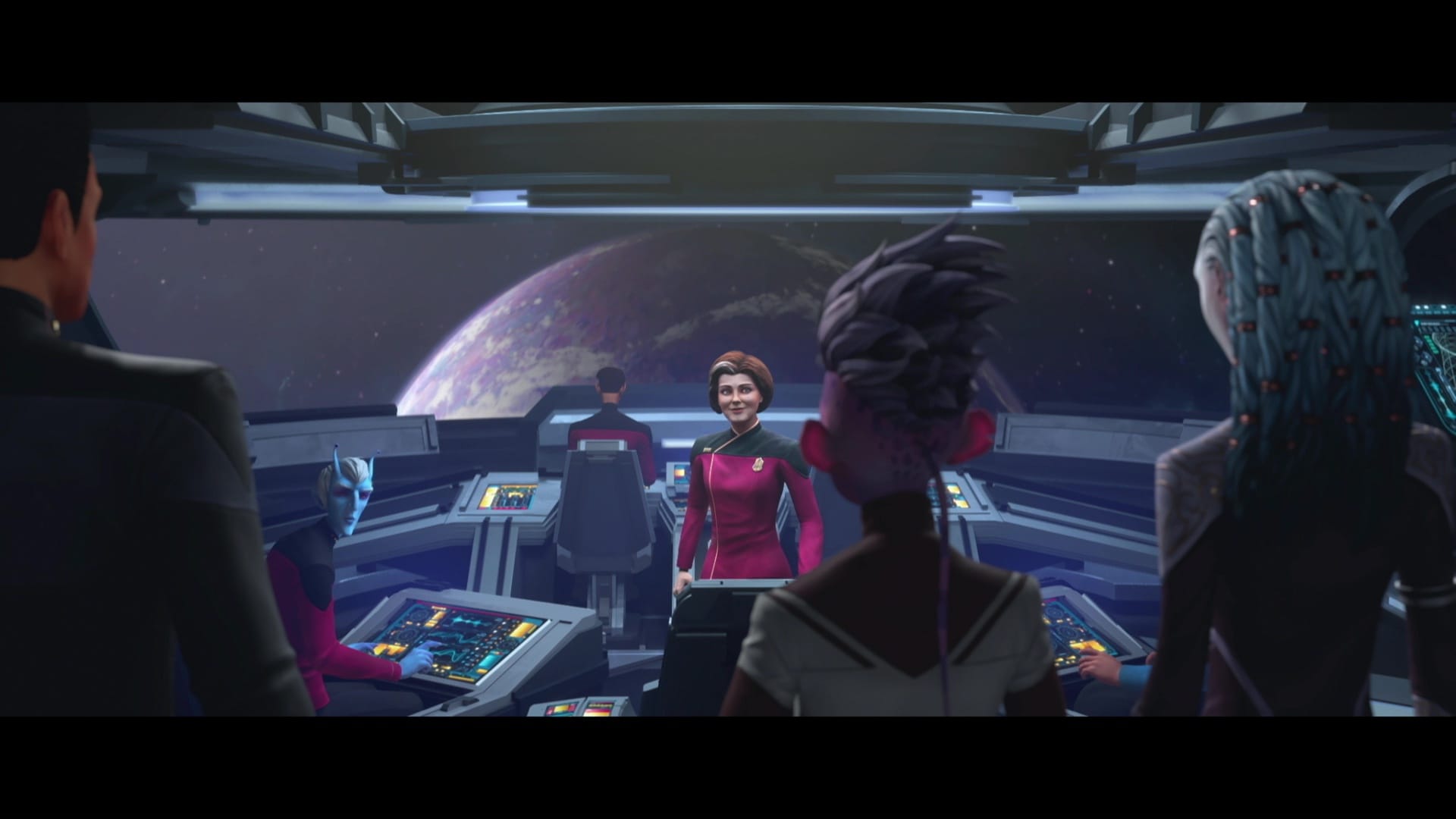
“Producing Prodigy: The Legacy” looks at the way Season Two expands its own narrative to include more characters from the TNG canon, such as Wesley Crusher – TNG’s “original prodigy,” it’s pointed out – while “The Odyssey of Prodigy” takes a little more time to talk about the larger goals of the second season, the themes the Hageman brothers wove into the master plot, and how this run sets its cast up for further adventures. Whether or not we’ll ever see those adventures is an open question; even the creators allow that there hasn’t really been talk of a third season, and months later it sure seems like that’s not going to happen. But these two seasons of Prodigy will always be with us on Paramount’s Blu-rays – looking and sounding great, and waiting to be discovered by the next generation. Or the one after that.
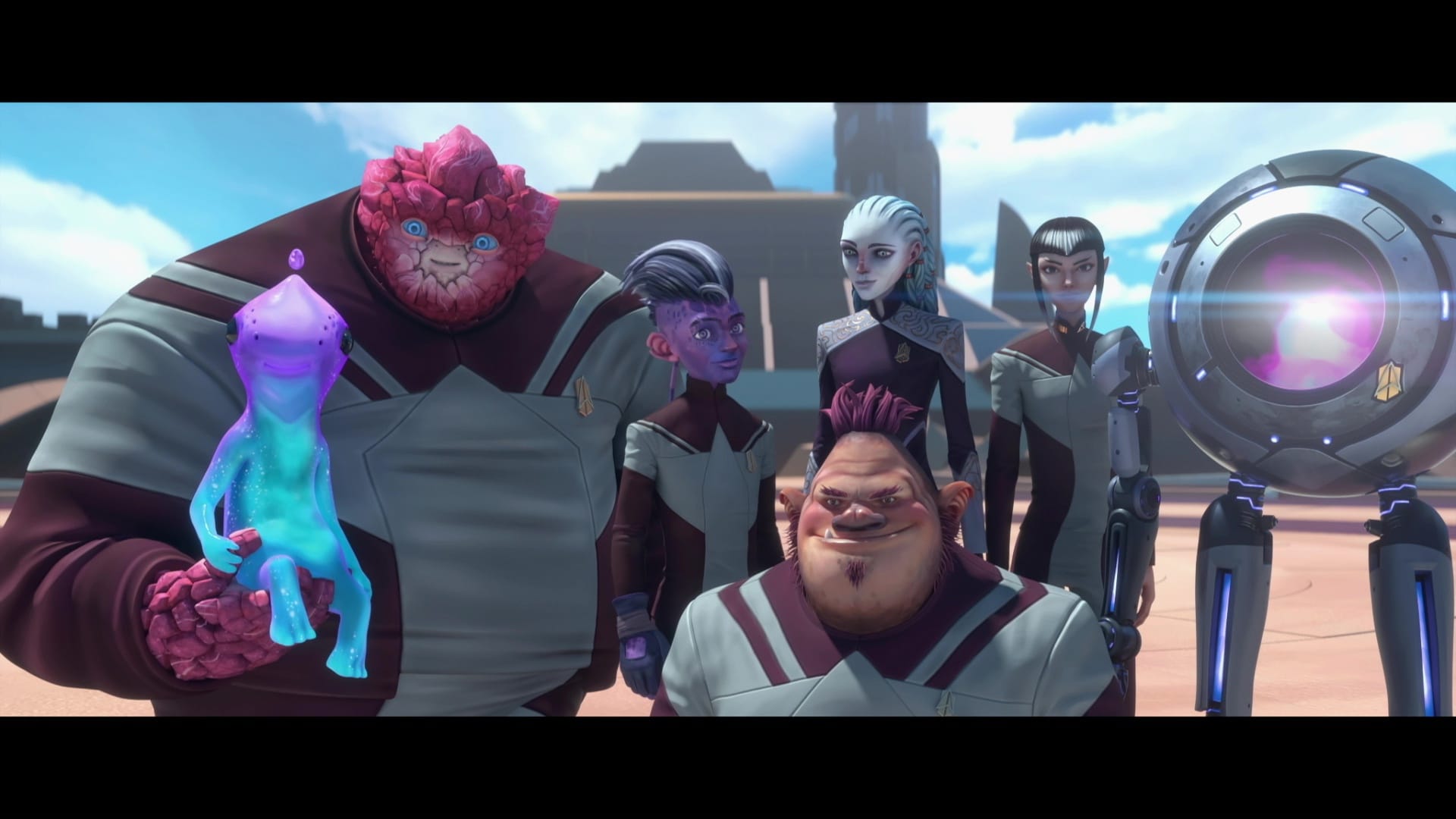
One other thing Prodigy does very well is understand the cultural resonance of Star Trek beyond its own universe – as best expressed in the Season One episode that riffs delightfully on Galaxy Quest, with the Protostar crew discovering an alien civilization that’s turned an encounter with James T. Kirk’s Enterprise into a sort of creation myth. And it just so happened that Paramount released a 4K edition of Galaxy Quest to mark that film’s 25th anniversary last December, so let’s spin that up while we’re at it.
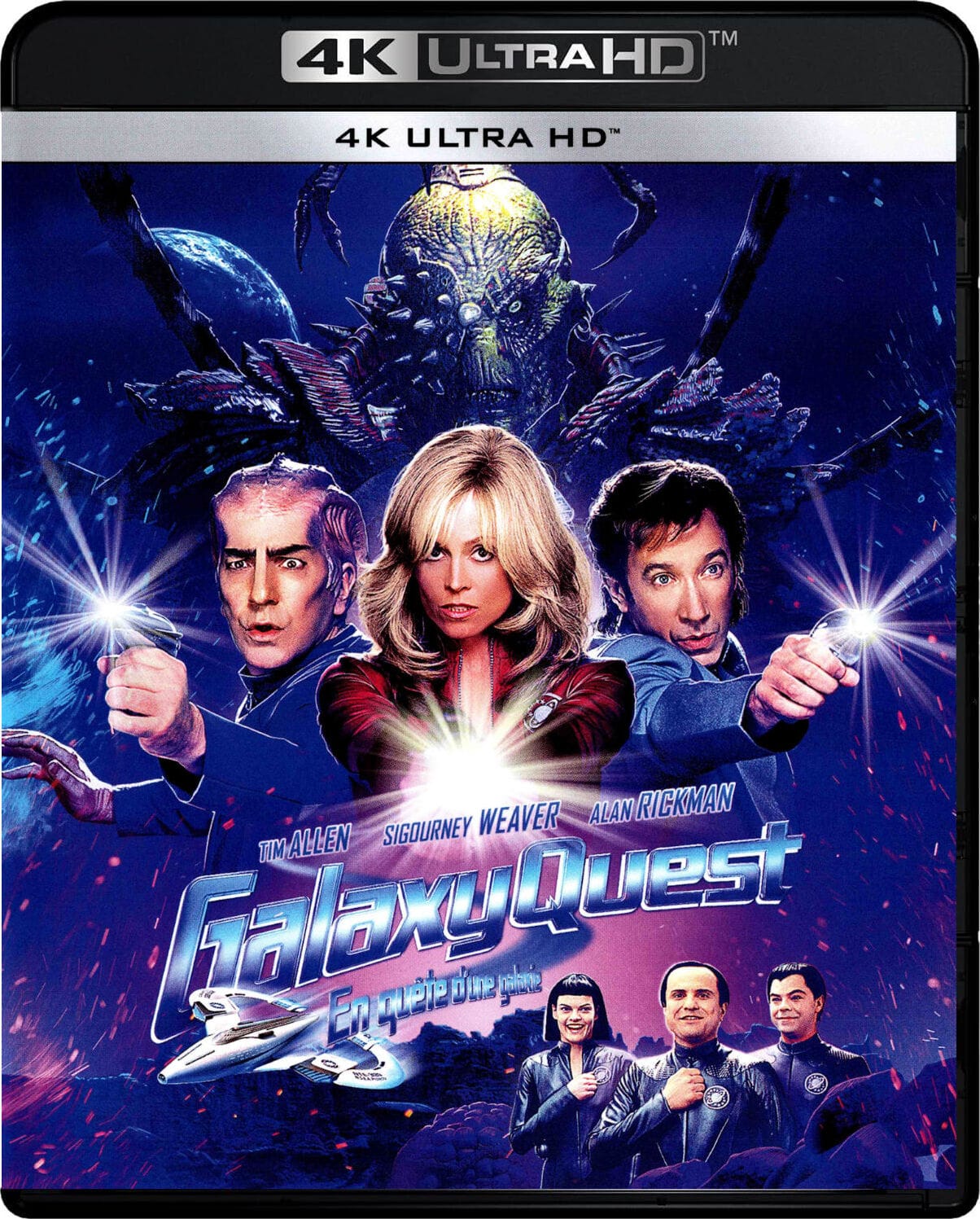
Have you seen Galaxy Quest recently? Dean Parisot’s comedy-adventure about a bunch of TV actors from a beloved Trek-like show recruited by aliens who believe they really are the sci-fi characters they played decades earlier has only grown sharper and more relevant in the age of Marvel and weaponized fandom; the only thing that dates the picture is the lack of backlash when Tim Allen’s has-been cult hero, Jason Nesmith, snaps at an overzealous fan early in the film. (Galaxy Quest was made when social media was just nerds in Usenet chat rooms, and trust me: We understood what the movie was doing.)
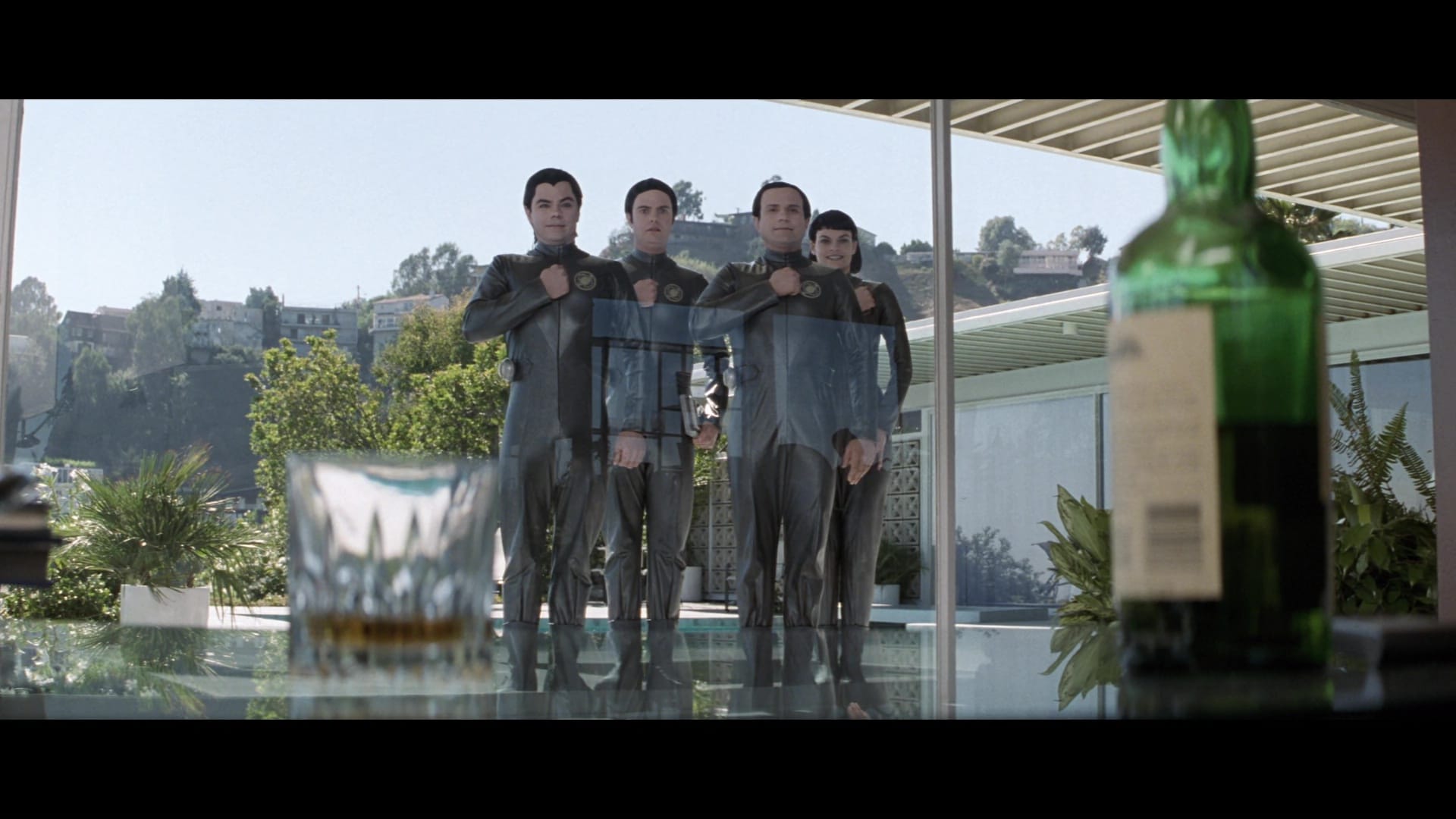
Nope, a quarter-century later Galaxy Quest remains one of the warmest, kindest adventure movies ever made, a Star Trek parody that recalibrates itself into the real thing so subtly you might not even notice, with the characters gradually moving from skeptical to invested as the stakes become clear. It’s a brilliant cultural mash-up that paves the way for Edgar Wright’s Shaun of the Dead, among others, reminding us what we love about a subgenre – in this case, the earnestness and slight cheesiness of original Trek – in order to bring it back to life. The NSEA Protector may not be the USS Enterprise, but she soars all the same.
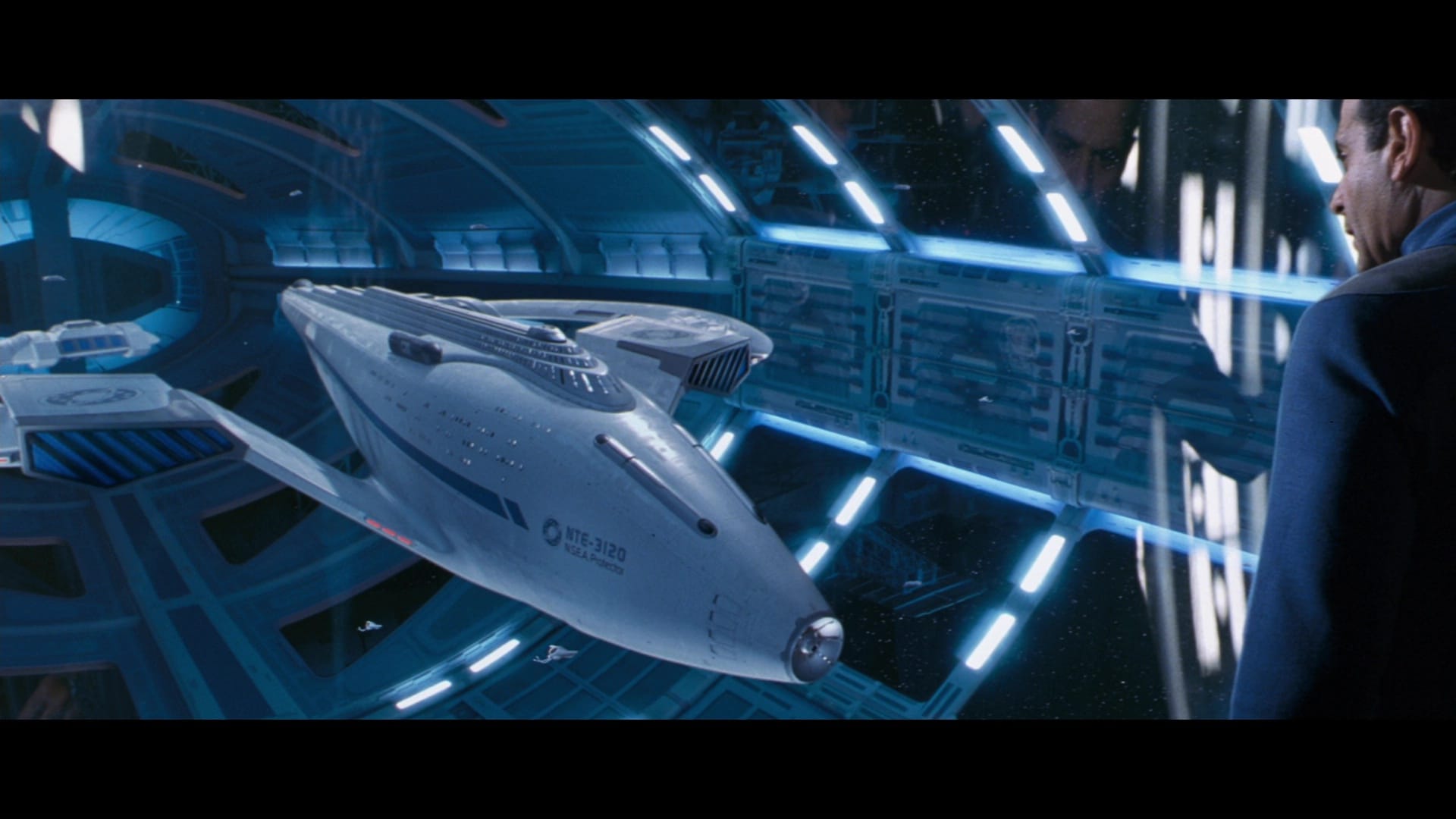
And that cast! Allen’s a perfect choice for the Shatner analogue, and even has a decent dramatic moment or two, but he’s surrounded by power players who are clearly having the time of their lives: Alan Rickman, Sigourney Weaver, Tony Shalhoub, Daryl “Chill” Mitchell and – in his breakout role – future Oscar winner Sam Rockwell. Also around are Enrico Colantoni, Justin Long, Jed Rees, Rainn Wilson and Missi Pyle, every one of whom brings something distinct and wonderful to the party. (Colantoni’s audition for the Thermian leader Mathesar was so good that the filmmakers just told every other actor to watch it and do what he does.)
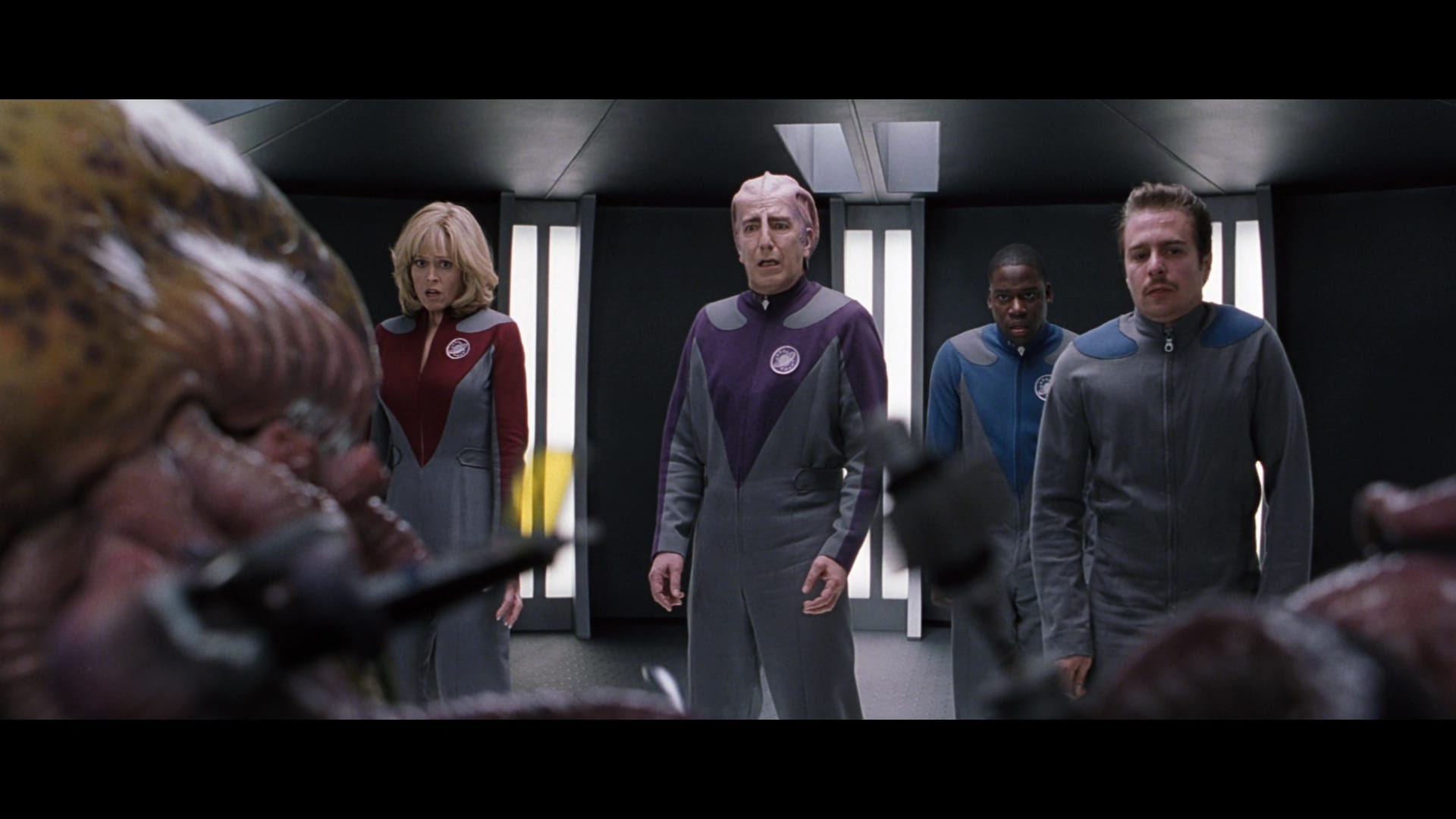
It’s lightning in a bottle, a symphony of smart jokes and surprising feeling, and while I was worried the effects might have aged or the pacing might feel pokey, the movie still plays. David Howard and Robert Gordon’s script mimics the structure of a rousing Trek two-parter, alternating debates about morality and strategy with engaging action sequences, and Parisot establishes an elastic tone that lets his characters question the wonky sci-fi logic even as they wind up embracing it. And the new 4K master lets us revel in the texture of the alien warlord Sarris’ prosthetics, the details in the upscaled Protector’s infrastructure and devices, the pasty makeup on Colantoni and his fellow Thermians, and even the slightly stale air of a fan convention in 1999.
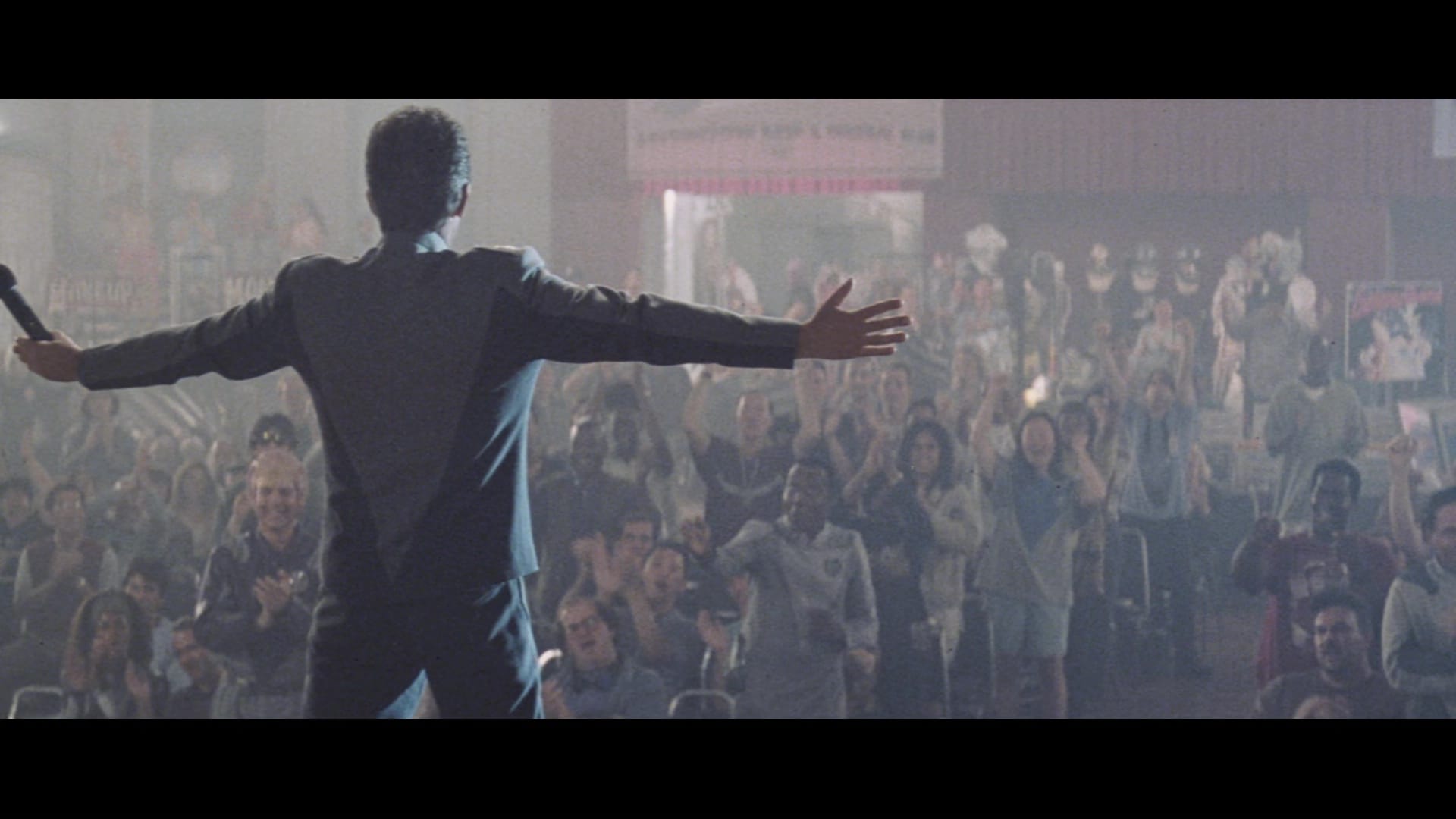
This edition also restores the original device of starting at the 1.33:1 of a TV show, widening to 1.85:1 almost immediately and expanding to full scope at a key moment – which all previous home masters ignored. I don’t know how many people will care about this particular restoration – obviously the impact is diminished when the film is letterboxed within a 16:9 screen – but I do, and I’m happy to have the film as originally intended, especially since it’s now sporting a peppy Dolby Atmos remix that lets David Newman’s score boom joyfully around the soundstage.
In addition to most of the archival features produced for previous discs (except for the “On Location in Space” featurette from the DVD and the “Galactopedia” interactive thingie from the Blu-ray), Paramount’s 4K release adds a 20-minute “Filmmaker Focus” interview with Parisot, who’s very happy to celebrate the script, the cast and the faith of nascent studio DreamWorks SKG in letting him make the movie he wanted to make.
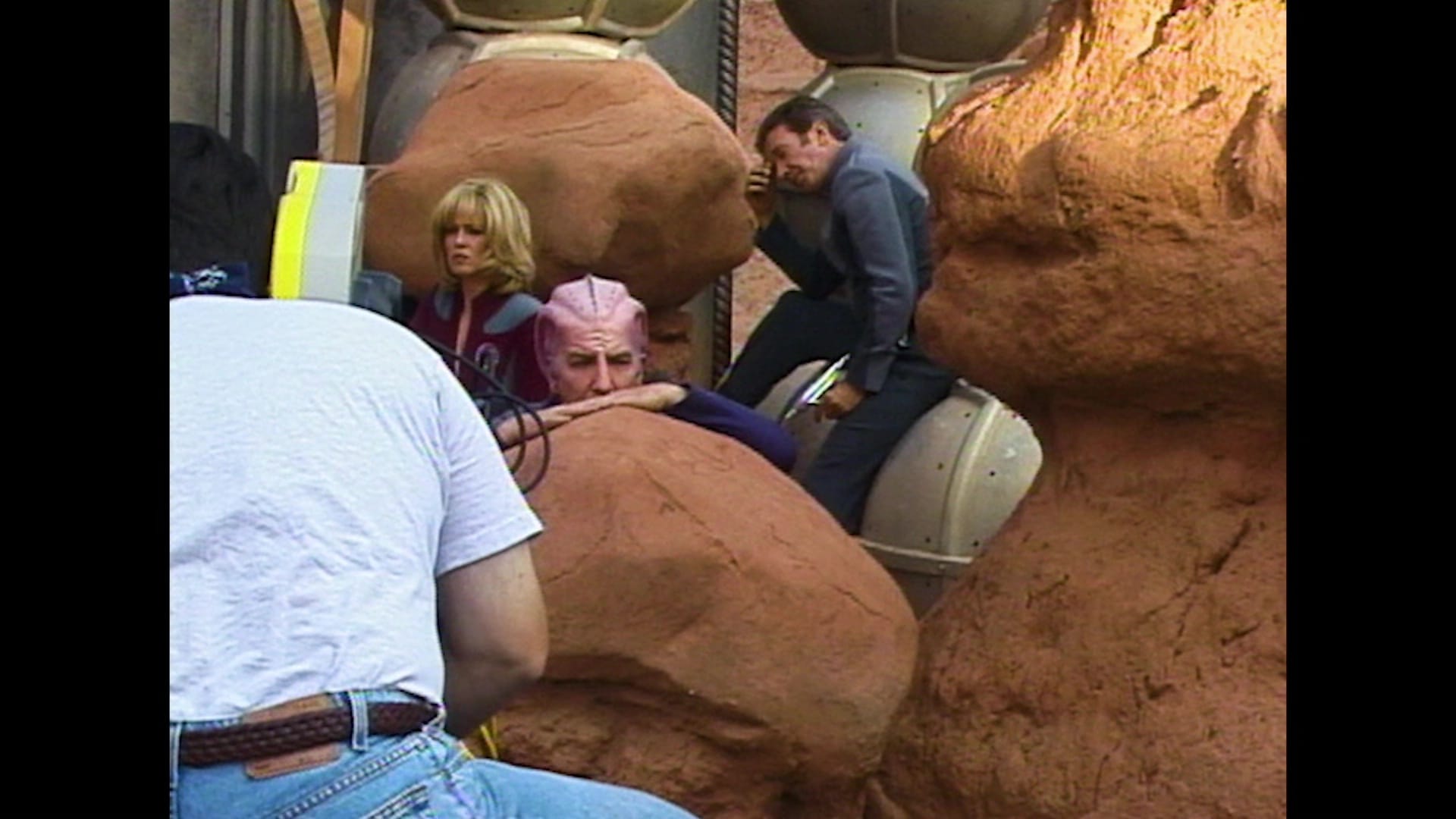
From the stills and behind-the-scenes footage, it’s clear everyone had a great time, and Parisot more or less calls Galaxy Quest the best work he’s ever done. I am inclined to agree.
The steelbook edition of Star Trek: Lower Decks: The Complete Series is now available on Blu-ray from Paramount Home Entertainment, as are Star Trek: Lower Decks: The Final Season and Star Trek: Prodigy: Season Two. Paramount’s 25th anniversary special edition of Galaxy Quest is available in separate 4K and Blu-ray editions. By Grabthar’s hammer, what a picture.
Up next: Antiviral and Delicatessen offer two very different takes on humanity's future, and also on art direction. You'll see.
